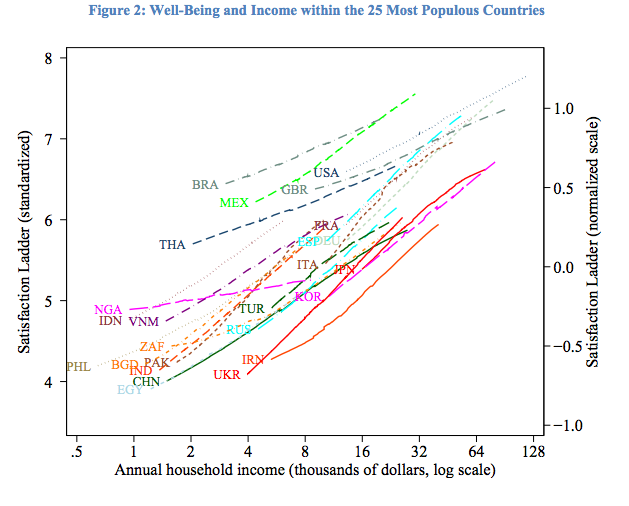Wake up call for me, after having repeated some of these memes as fact.
· The less someone knows about a subject, the more they think they know.
· Income (beyond some fixed level) doesn’t make people happy.
· People bounce back from setbacks and return to a fixed level of happiness. Adjunct: winning the lottery doesn’t make people happier.
· Also: Even so-called ‘wine experts’ can’t tell the difference between red and white wine by taste.
I got cW to perform a blind taste test with friends and he sent me a fascinating e-Vox recording of the event. It wasn't laboratory-grade rigor, but I was convinced of his ability to distinguish wine color by taste, largely thanks to his meaningful descriptions of evidence like "constriction in the sides of the mouth due to astringent tannins in the red."
The lesson:
- If you read the abstract and conclusion, and then skim the paper for interesting bits (graphs, tables, telling flaws in the methodology, etc.), that’s enough to see if popular claims about the paper are true in most cases. In my ideal world, you could get that out of just reading the abstract, but it’s not uncommon for papers to make claims in the abstract that are much stronger than the claims made in the body of the paper, so you need to at least skim the paper.
This one is unpackable, though. 1) it's a log scale 2) It's priced in dollars across all countries, not in percentage of average income 3) the log taper starts going linear between $60 and $80k. The article makes the argument that "all these statements are false" when in fact, "all these statements are nuanced" and "a few of them have been misrepresented." HL Mencken put it thusly: "In America, happiness is making $10 more a month than your brother-in-law." He weren't far off.
That was a good one. "Everyone knows" this, and so did I. The Economist has a cleaner chart, and it is striking how well the logarithmic relationship holds. I tried the suggested image search, and think I found the chart the author made fun of, "the one where people who make enough money literally hit the top of the scale. Apparently, there’s a dollar value which not only makes you happy, it makes you as happy as it is possible for humans to be."
I think the more interesting here is the intercountry comparison. For example, the richest group in Japan is slightly less satisfied than America's poor. I wonder if that is reflective of the Japanese being unhappy, Americans being happy, or an incommensurate comparison whereby we understand satisfaction to mean different things. Also, for the mathematically ignorant, a lin-log plot showing a linearity implies a logarithmic relationship, which means that there is a diminishing return on happiness with new money. So it appears the the trope that a little money makes a poor person a lot happier than a lot of money makes a rich person does, in fact, appear to hold across all the countries surveyed, even if there isn't a hard cap beyond which one doesn't get happier with more money.

